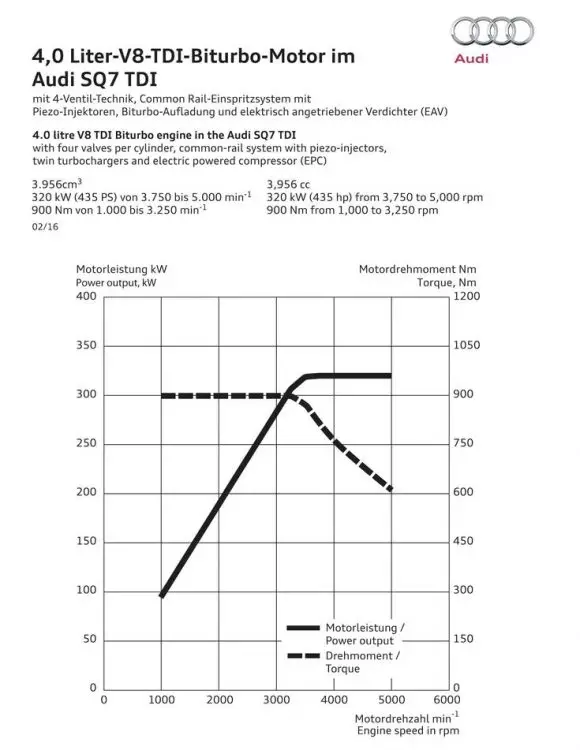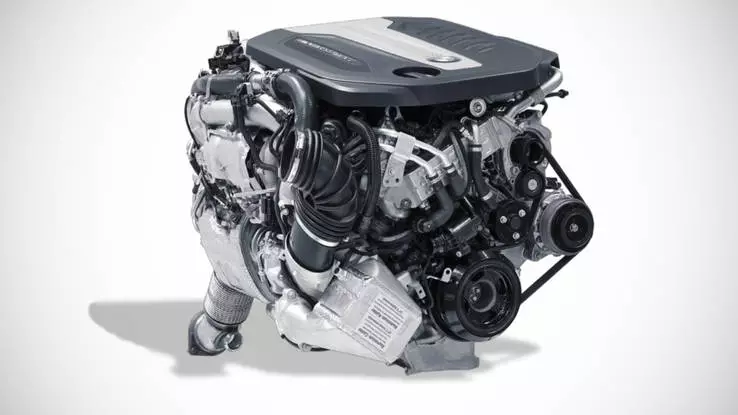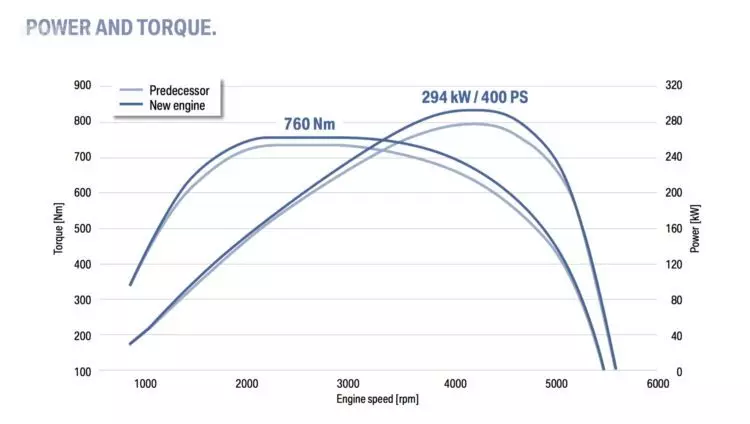The reign of diesel engines is about to come to an end. Increasingly stringent environmental regulations are putting immense strain on these powertrains. And to comply with the environmental standards established by European entities, brands have been forced to resort to increasingly expensive technologies in their diesel engines.
A decision that has, of course, had an impact on the final price of the cars and therefore also on the market. In the lower segments (A and B) the rule is no longer the Diesel engine, and gasoline once again dominates – the C segment is also moving in that direction. In the premium segments, where price is of lesser importance, the Diesel engine remains «king and lord».
Did you know that: more of 70% of the production of German premium brands is made up of Diesel models? True story…
So, as long as the battle doesn't move to another field, it is in the Diesel domain that the main premium brands are confronted. Even though, behind the scenes, the electrification process is already underway. Let Volvo say…
Our candidates for the «superdiesel» trophy
In this championship for supremacy in diesel engines, BMW and Audi are the outstanding leaders. Did you miss the Mercedes-Benz name in this last sentence? Well… Mercedes-Benz does not currently have any diesel engine capable of making arguments with the two engines that we are going to present to you.Ladies and gentlemen, straight from Ingolstadt to the world, on the right-hand side of the «ring» we have Audi's 4.0 TDI 435hp engine. On the left side of the ring, coming from Munich and betting on a totally different architecture, we have the 3.0 quad-turbo engine (B57) with six cylinders in line and 400 hp from BMW.
We could also add to this “skirmish” the Porsche. However, the Diesel engine that powers the Panamera is a derivation of the Audi SQ7's TDI engine with less exotic solutions – so it is left out. And speaking of «outside»… outside Germany, there is no brand producing diesel engines with more than 400 hp. So our “superdiesel” trophy finalists are all hailing from Ingolstadt and Munich.
Which one will win? We make the presentation of the engines, we give our verdict, but the final decision is yours! There is a vote taking place at the end of the article.
Details of Audi's 4.0 V8 TDI
It's the most powerful diesel engine in the Audi range, and for now it's only available in the new Audi SQ7, and it's expected to be used in the next generation Audi A8 – which we've already driven here. It is also the first diesel engine of the brand to use the Valvelift system, which allows the electronic engine management to adjust the opening of the valves according to driving needs – a kind of VTEC system applied to a diesel engine.
NOT TO BE MISSED: The 90-year history of Volvo
When it comes to numbers, be prepared for overwhelming values. The maximum power is 435 hp of power, available between 3,750 and 5,000 rpm. The torque is even more impressive, believe me… there are 900 Nm available between 1,000(!) and 3,250 rpm! To put it simply, maximum torque is available right from idle and there is no turbo-lag. Been there, done that.
When paired with the gigantic SUV «SQ7» and its two tonnes of weight, this 4.0 TDI is capable of fulfilling 0-100km/h in just 4.8 seconds. In other words, "numbers" typical of the championship of truly sports cars. The top speed is electronically limited to 250km/h and the advertised consumption (NEDC cycle) is only 7.4 litres/100km.
What is the secret of this engine? Numbers like this don't fall from the sky. The secret of this engine is the two variable geometry turbos and a third electric drive turbo (EPC) that works thanks to a 48V electrical system. As this turbo (EPC) is not dependent on exhaust gases to function, it can immediately increase the power output.

This 48V system is even touted as the next big trend in the automotive industry. Thanks to this technology, in the future all electrical systems that today depend directly on the combustion engine (reducing its efficiency) will be powered by this 48V system (air conditioning, adaptive suspensions, steering, brakes, navigation system, autonomous driving , etc).
The details of the 3.0 quad-turbo from BMW
While Audi bet on cubic capacity and the number of cylinders, BMW bet on its traditional formula: 3.0 liters, six cylinders and turbos à la carte!
The Munich brand had already been the first brand to equip a production engine with three turbos and is now again the first to equip a diesel engine with four turbos. One, two, three, four turbos!

As far as actual numbers are concerned, this engine in the BMW 750d develops 400 hp of power and 760 Nm of maximum torque. Peak power is reached at 4400 rpm, while maximum torque is available between 2000 and 3000 rpm. It should be noted that this engine develops 450 Nm of torque as early as 1,000 rpm. Fabulous numbers, but still far from the 900 Nm of the Audi engine.
As you can see, in terms of maximum power these two engines are very close, but the way they deliver power and torque is totally different. BMW achieves these numbers with 1,000cc less and two cylinders less than Audi. If we value the specific power per liter, the BMW engine shines more.
The four-turbo setup works very efficiently, with two smaller variable geometry turbos and two larger turbos. It is thanks to a complex system of “butterflies” that BMW's electronic system – by means of the car's speed, position of the accelerator pedal, engine rotation and gearshift – channels the turbos to which the exhaust gases must go.

For example, when driving at low speeds and at low revs, the system gives priority to smaller turbos so that the response is more immediate. Although in most situations this 3.0 quad-turbo works with three turbos at the same time. Problem with this system? It has a complexity only comparable to the Bugatti Chiron.
Let's go to the numbers? In the BMW 750d this engine is capable of reaching 0-100 km/h in just 4.6 seconds and reaching 250km/h (electronically limited). From a consumption point of view, BMW announces only 5.7 liters/100km (NEDC cycle). Want more interesting data? Compared to the equivalent petrol engine (750i), this 750d only takes 0.2 seconds longer from 0-100 km/h.
Which one is the best?
Given the arguments, it is difficult to attribute absolute victory to any one of these engines. Firstly, because it has not yet been possible to compare these two engines on equivalent models. And secondly because it depends on the criterion adopted.
BMW gets a specific power per liter higher than the Audi engine – that's how BMW would win. However, the Audi engine delivers twice (!) the torque in equivalent regimes, with clear benefits for driving pleasantness – that's how Audi would win.
Looking only at the technological issue, the balance once again tilts towards Audi. While BMW added yet another turbo to its well-known 3.0 liter engine, Audi went further and added a parallel 48V system and a revolutionary turbo with electric activation. But as we have seen, in the end these engines are equivalent.
It is very likely that these two engines are the last "superdiesel" in history. As we mentioned before, the current market trend is towards the complete extinction of diesel engines. Do we feel sorry? Of course we do. Over the last 40 years, diesel engines have evolved immensely and are no longer the poor relatives of the «Otto» engines.
That said, the "ball" is on your side. Which of these brands produces the best diesel engine today?
